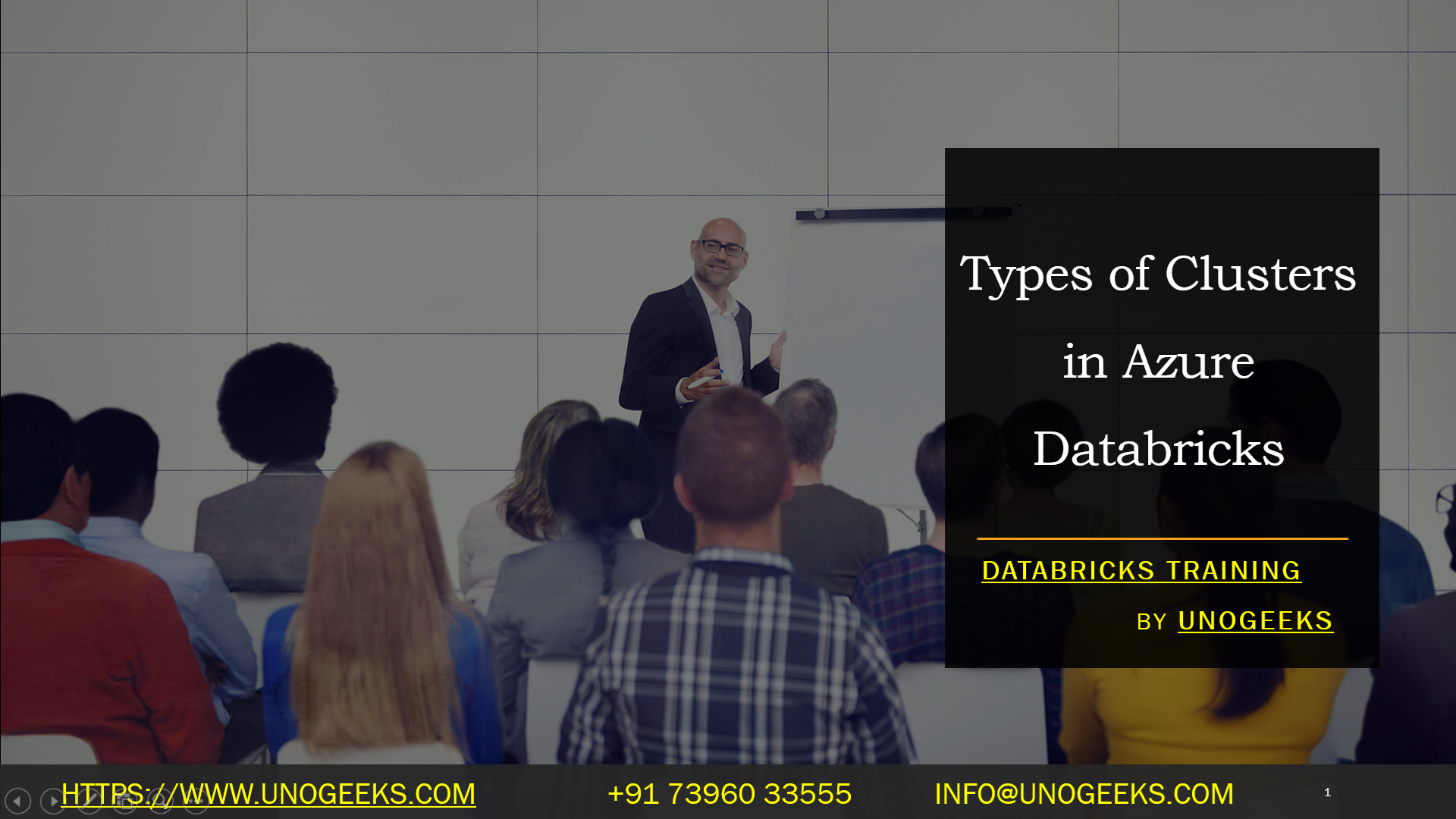Types of Clusters in Azure Databricks
Types of Clusters in Azure Databricks
In Azure Databricks, there are primarily two types of clusters:
- Interactive Clusters:
- Interactive Clusters, which you can manually create through the cluster UI, are your go-to for interactive data exploration, analysis, and development tasks. They offer the advantage of being shared among multiple users and notebooks, and they stay active until you manually terminate them. They are shared among users and notebooks and remain active until manually terminated.
- Job Clusters:
- Job Clusters, on the other hand, are automatically created when a Databricks job is triggered. They are dedicated to running a particular job and are automatically terminated once completed. They are committed to running a specific job and are automatically terminated once completed.
- Job clusters provide flexibility and cost efficiency as they only consume resources when actively running jobs.
Each of these cluster types can be further classified based on the underlying compute infrastructure:
- Single Node Clusters:
- These clusters consist of a single virtual machine (VM) running Spark locally.
- They are suitable for small-scale workloads or tasks that don’t require distributed processing.
- Single-node clusters are cost-effective and straightforward to manage.
- Multi-Node Clusters:
- These clusters consist of multiple VMs, one acting as the driver node and the others as worker nodes.
- They are designed for larger workloads that require distributed processing and can handle big data processing tasks.
- Multi-node clusters provide scalability and high performance but are more complex to manage than single-node clusters.
Additionally, when creating a cluster, you can choose between All-Purpose Compute and Job Compute. All-Purpose Compute offers flexibility for various workloads, while Job Compute is specifically optimized for running automated jobs.
Databricks Training Demo Day 1 Video:
Conclusion:
Unogeeks is the No.1 IT Training Institute for Databricks Training. Anyone Disagree? Please drop in a comment
You can check out our other latest blogs on Databricks Training here – Databricks Blogs
Please check out our Best In Class Databricks Training Details here – Databricks Training
Follow & Connect with us:
———————————-
For Training inquiries:
Call/Whatsapp: +91 73960 33555
Mail us at: info@unogeeks.com
Our Website ➜ https://unogeeks.com
Follow us:
Instagram: https://www.instagram.com/unogeeks
Facebook:https://www.facebook.com/UnogeeksSoftwareTrainingInstitute
Twitter: https://twitter.com/unogeeks
